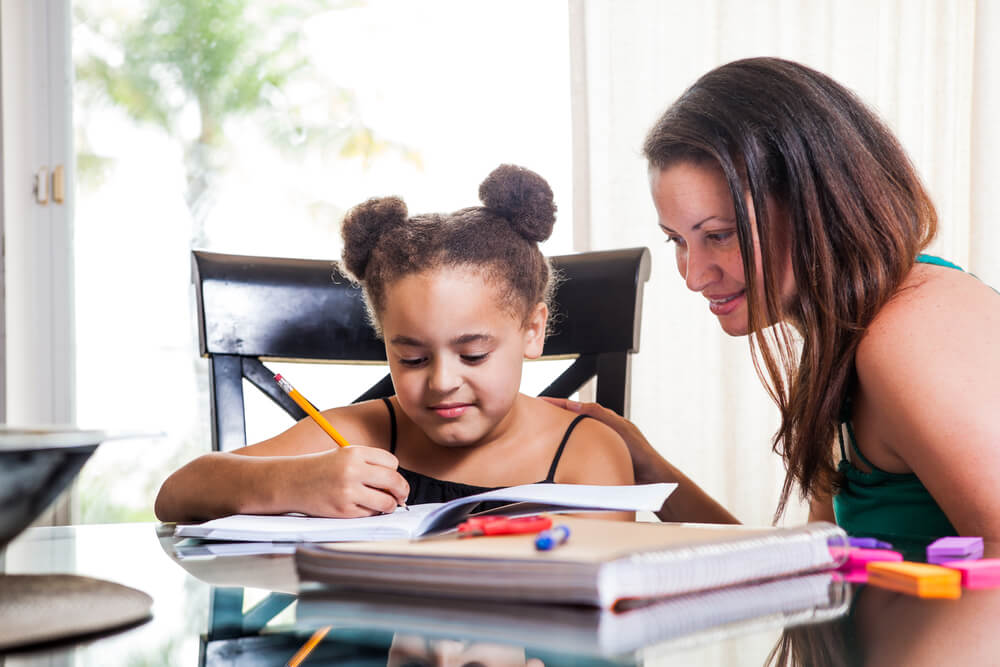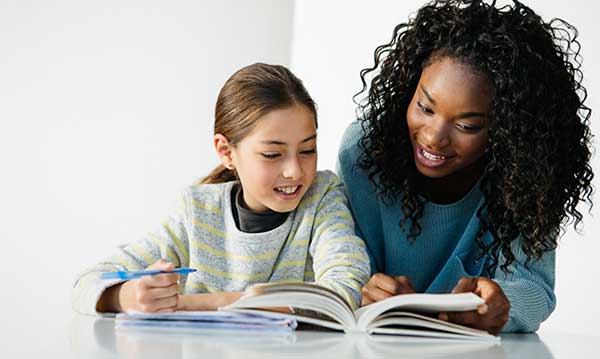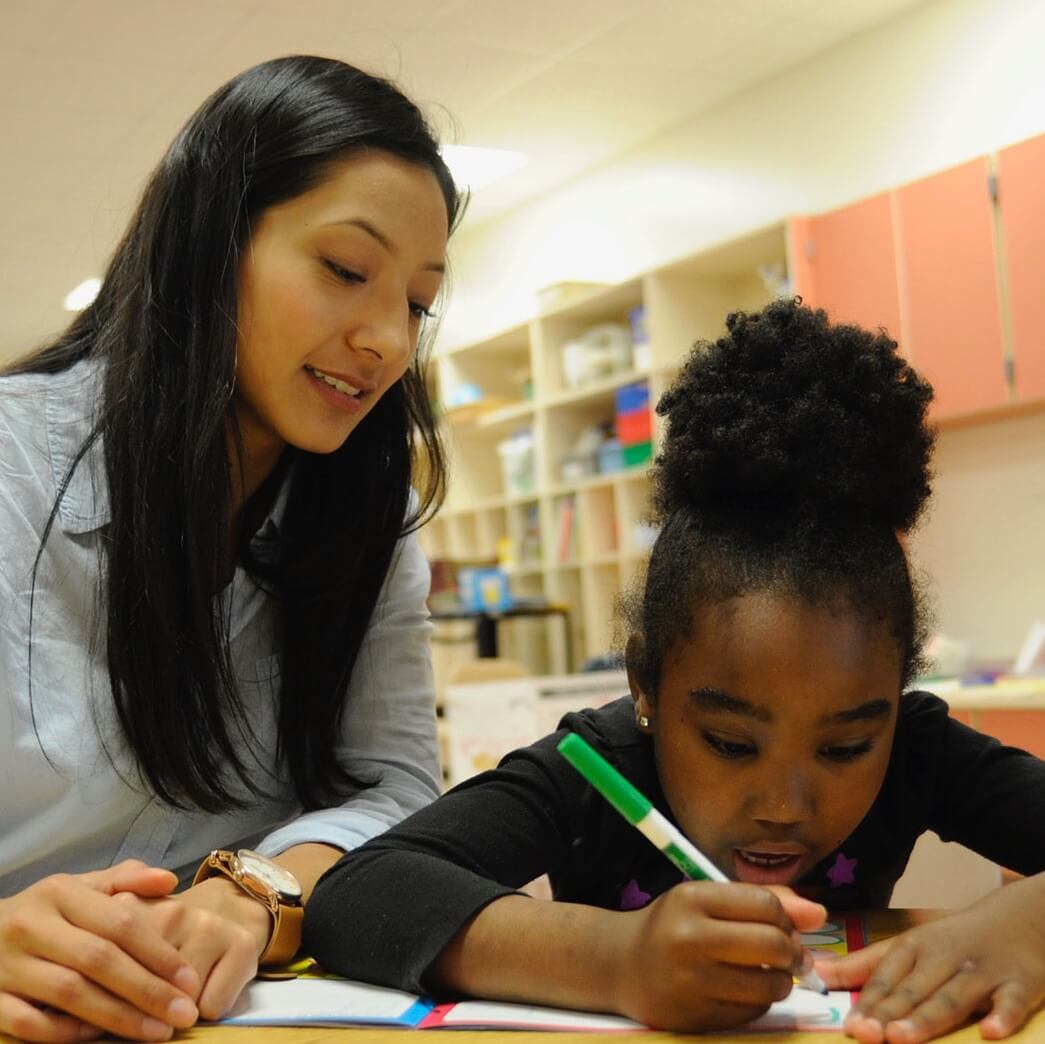Content:
- “Being ready for school” – how is it?
- How to determine the child's readiness for school?
- Preparing children for school: at home or on special preparation courses?
- Preparing for school at home.
Preparing for school and preparing for first grade is fraught with a difficult life period for the whole family. Nigerian education forces parents to study with their children in advance. Teaching to read your children before school starts is a mandatory, kind of an unwritten rule. Pre-schoolers must not only learn to read, but also to learn how to write and count. Today we will tell you how to prepare a child for school easily and stress-free.
BEING READY FOR SCHOOL – HOW IS IT
Readiness for school is a set of characteristics of a child older than preschool age. This is a formed ability for independent work. The possibility of accepting yourself in the social position of the student. This is not pedagogical, but a psychological definition that parents themselves must work on. Practical lessons can and should be shifted to professionals. The sooner parents do it, the better.
After all, some children can learn the curriculum over the summer, some in six months. Psychologically prepare a child for school - the task of the father and mother. And you need to start training as soon as possible. Children in school are subject to change and stress. From the social position in society to the specifics of education in a particular educational institution. Preparation for school is a two-way process (both children and parents should work).
Psychologist's advice: before entering a school, you need to pay attention to its maturity. School maturity is the ability of a student to cope with tasks and social changes. It includes - personal maturity - volitional maturity - intellectual maturity. The personal maturity of children is manifested in the desire to learn. Preparing children for the school includes talking about the upcoming admission and growing up. “In school, I will find many new friends”, “I will buy a beautiful school uniform”, “My friend is in the same school as I am”. Children often show personal readiness.

To understand that parents did everything for personal maturity is simple. Pay attention to the child’s behaviour. If he or she shows independence and readiness for new rules. The baby is ripe. The willful maturity of children is very important for a first grader. At school, children must do not only what they want, but also what they require. The most prepared children in this regard are those who grew up in severity. If the family has a “mother-boss” it will not be difficult for the kid to obey the teacher. For more soft children, before school, parents should hold educational conversations. With toys and in the form of a game, explain all the responsibilities. Intellectual maturity of children can be determined in one way. Check quantitative vocabulary, outlook and knowledge of the world. If a kid is talkative, asks many questions and learn something new with desire – your child is ready to learn.
Preparation for the first class includes physiological, physical, mental work with a child. To achieve the best result of full preparedness for entry into school, parents must: ensure a smooth adaptation in the new society to make the transition from childhood to school without stress to listen to the tutor and not do what they want. At this age, children are still prone to disobedience. Especially those who grew up in a loving family. In such cases, it is sometimes even better to involve psychologists in the work.
HOW TO DETERMINE THE CHILDREN'S READINESS FOR SCHOOL?
Psychologists point to specific factors that will help determine whether a child is ready for school. If a child can independently perform tasks for 20-30 minutes - this means that arbitrary functions are developed for school. He must have a cognitive interest. The image of the school does not perceive with punishment. He should talk about school as about what he is waiting for. The school preparation program affects this. Therefore, parents should follow every step of the child’s development. But psychologists believe that parents should pay more attention to how to prepare the child for school psychologically. On average, a child’s psychological readiness is formed between 6-7 years. But, according to age psychology, development is individual. It is better to decide on entry into the first class together with a specialist.
Take the test. Ask your child:
- To draw a man and a drawn person should have a head with hair or a hat. There must be a neck that connects the head and shoulders, the torso. On the face - eyes, nose, mouth. Hands and feet with five fingers. Clothing must be masculine.
- Write three short words that are dictated by the parent. For example: “hey”, “yes”, “tea”. If your kid doesn’t know how to write yet, it is fine, let him draw these words.
- Draw five points in the shape of a pentagon. The parent should draw these points, and the child draws lines. Pay attention to how he does it. Rating: Each task is rated from 5 to 1. It is summarized. 5 is the lowest result. A mature child will receive from 1 to 3 points. The average is 5-9 points. An immature baby will get over 10 points. If the child is immature parents definitely need to contact a child psychologist.
Before entering school, a child must know: - Full name - Mother’s and Father’s full names and type of activity - city and country of residence - primary colours - letters and sounds, pay attention to the child’s social adaptation, his / her emotional stability and motivational readiness. In addition to perseverance in the first class, you need to learn to accept the rules of the team.
During mental development, emotional instability can cause personal problems. Doctors also recommend paying attention to the fine motor skills of the child’s fingers. Precise small movements by the toes and hands indicate not only a set of coordinated human actions but also the proper functioning of the nervous and visual systems.
PREPARING CHILDREN FOR SCHOOL: AT HOME OR ON COURSES?
The most favourable age for preparation is 3-4 years. Indeed, at this age, the child is formed as a person, and the child becomes interested in the outside world and learns everything in life. Since everyone is trying to prepare the child for school at home, you need to start the process correctly. Prepare a plan of action. But do not set specific goals.
Preparing for school at home.
Each child is an individual, and comparison with the success of other children will oppress him. He will cease to be interested. Teach him math, simple basics. When playing with toys, count them. Consider the cars that enter and leave the imaginary yard. Do not forget to praise and reward for the results. Do not scold the child, even if he or she does not understand something. Preparing a child for school requires workplace preparation. Equip a table, chair and a separate area for learning. Do not forget about the sports area. Study for 30-35 minutes with breaks. This is the best time for children 3-4 years old.
Before you teach a child to write, teach him to read. Start by distinguishing between letters and sounds. Then memorize each letter separately. Later try to read the words. After that try to read full sentences. Read out loud for the child, so he or she will remember the details of the story. Ask your kid to read later. Discuss everything that was read in the book, so child can remember read material. See educational cartoons. Stimulate him to ask questions. Pick the right tone and explain why it is important to learn what you don’t like. After all, if he or she solves rebuses well, and writes poorly, the second will have to devote more time.

It is necessary to develop a child’s speech and diction. If there are obvious problems with pronunciation, work with a speech therapist. Learning a foreign language is also better to do with a professional. If a child initially incorrectly learns the words and rules, it will be hard to correct this later. Develop a performance appraisal system. It should not be a bad mark. Buy stickers that will delight him. Cloud - you need to try more. The sun - well done. An asterisk is the best result. No bad grades. But it will teach him that the school will evaluate all the future homework.
Preparing a child for school takes a lot of time: Six months before admission, it is necessary to talk with the school principal. Find out the conditions of admission and the selection committee. Take in advance the tasks that will be in the entrance exam. Talk with the parents of the children who will also go to this school. Speak with a psychologist before testing.
In addition, conduct interviews with pre-schoolers. It draws attention to personal development and mandatory skills for learning. Specialized schools require you to write 10-20 words and read 2-3 sentences. Therefore, many children are going to preparatory courses before school. An individual educator must provide all the technologies and teaching methods. Classes are better conducted in a specialized classroom. Often tutors have them. Sometimes equipped at home. In the classroom for classes, there must be a play area.
Light during class should be bright. Don’t donate the afternoon sleeping time for the sake of tutoring. In addition to the usual tutor, deal with a psychologist. He will conduct specialized lessons. Work with a speech therapist. Do not go to every class with your child. A kid should get used to the independence that awaits him at school and to find contact with the tutor. You can find the best tutor for your kid on our website: www.upskillstutor.com.ng

